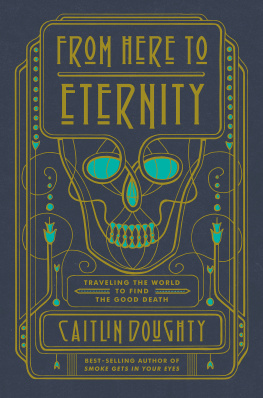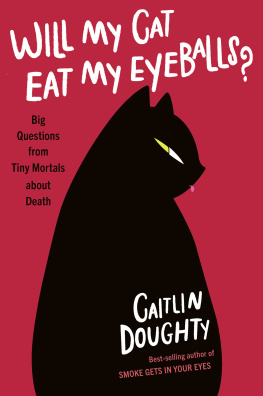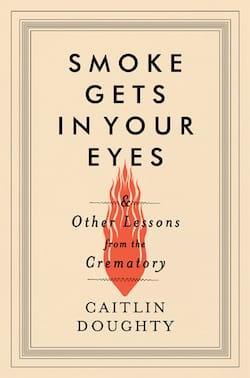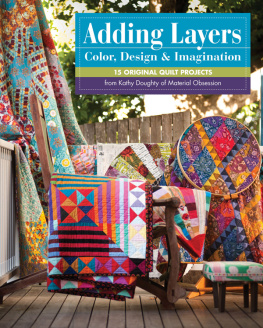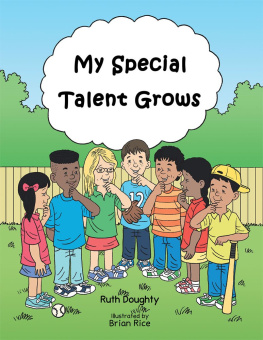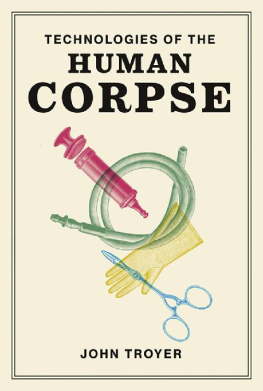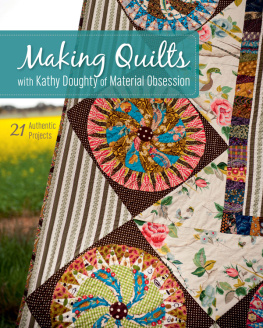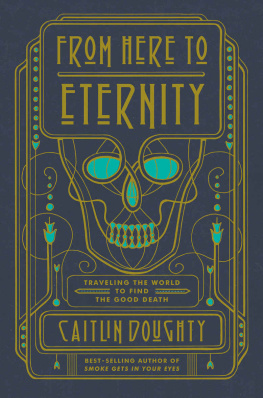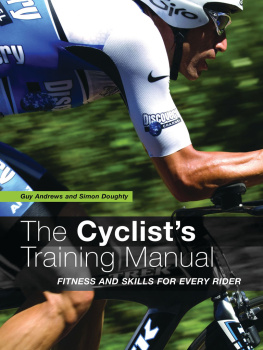
ALSO BY CAITLIN DOUGHTY
Smoke Gets in Your Eyes



Copyright 2017 by Caitlin Doughty
All rights reserved
First Edition
For information about permission to reproduce selections from this book, write to Permissions, W. W. Norton & Company, Inc.,
500 Fifth Avenue, New York, NY 10110
For information about special discounts for bulk purchases,
please contact W. W. Norton Special Sales at
specialsales@wwnorton.com or 800-233-4830
Book design by Mary Austin Speaker
Production manager: Lauren Abbate
JACKET DESIGN BY DAVID J. HIGH, HIGHDZN.COM JACKET
ILLUSTRATION BY LANDIS BLAIR
ISBN 978-0-393-24989-7
ISBN 978-0-393-24990-3 (e-book)
W. W. Norton & Company, Inc.
500 Fifth Avenue, New York, N.Y. 10110
www.wwnorton.com
W. W. Norton & Company Ltd.
15 Carlisle Street, London W1D 3BS
F OR M OM & D AD
& all parents who let the weird kids be weird.
Adults who are racked with death anxiety are not odd birds who have contracted some exotic disease, but men and women whose family and culture have failed to knit the proper protective clothing for them to withstand the icy chill of mortality.
IRVIN YALOM, PSYCHIATRIST

CONTENTS


From Here to Eternity is a work of nonfiction. I have changed a small number of names and descriptive details.

T he phone rang and my heart raced.
The first few months after I opened my funeral home, a ringing phone qualified as a thrilling event. We didnt get many calls. What if... what if someone died ? Id gasp. (Well yes, dear, its a funeral homethat would be the point.)
The voice on the other end was a hospice nurse. She had declared Josephine dead ten minutes ago; the body was still warm to the touch. The nurse sat at the dead womans bedside, having an argument with Josephines daughter. The daughter had chosen to call my funeral home because she didnt want her mother whisked away the second she took her final breath. She wanted to keep Moms body at home.
Can she do that?
Of course she can, I replied. In fact, we encourage it.
Thats not illegal? the nurse asked skeptically.
Its not illegal.
Usually we call the funeral home and they pick up the body within the hour.
The daughter is in control of her body. Not the hospice, not a hospital or nursing home, definitely not the funeral home.
Well, okay, if youre sure.
Im sure, I said. Please tell Josephines daughter she can call us back later this evening, or tomorrow morning if shed prefer! Whenever shes ready.
We picked up Josephine at 8 p.m., six hours after her death. The next day her daughter sent us a video she shot on her cellphone. In the thirty-second clip, the dead woman lies in bed, dressed in her favorite sweater and scarf. Candles flicker on the dresser beside the bed, and the body is covered in flower petals.
Even in the grainy cellphone footage, you could tell that Josephine looked radiant her last night on Earth. Her daughter felt genuine pride in her accomplishment. Her mother had always taken care of her, and now she was taking care of her mother.
Not everyone in my industry is supportive of the way I run my funeral home. Some believe a dead body must be embalmed to be safe (untrue) and that a body should be handled only by licensed professionals (also untrue). The dissenters imagine that younger, progressive morticians are starting to make our profession look like a joke and wonder if circus is the right word for what funeral service is becoming. One gentleman promised, The day the funeral business turns into three-day visitations at the house of an un-embalmed body, Im done!
In America, where I live, death has been big business since the turn of the twentieth century. A century has proven the perfect amount of time for its citizens to forget what funerals once were: family- and community-run affairs. In the nineteenth century no one would have questioned Josephines daughter preparing her mothers bodyit would have seemed strange if she didnt . No one would have questioned a wife washing and dressing the body of her husband or a father carrying his son to the grave in a homemade coffin. In an impressively short time, Americas funeral industry has become more expensive, more corporate, and more bureaucratic than any other funeral industry on Earth. If we can be called best at anything, it would be at keeping our grieving families separated from their dead.
Five years ago, when my funeral home (and this book) was still a gleam in my eye, I rented a hut on a rural lagoon in Belize. At that time I lived the glamorous life of a crematory worker and body transport driverthe hut had to be very inexpensive. It had neither cellphone service nor Wi-Fi. The lagoon was nine miles from the nearest town, reachable only by four-wheel drive. The driver was the caretaker of the property, a thirty-year-old Belizean man named Luciano.
To give you a sense of Luciano, he was shadowed everywhere by his pack of loyal, if somewhat emaciated, dogs. When the hut was unoccupied, he would head into the Belizean bush for days at a time, wearing flip-flops, carrying his machete, followed by the dogs. He hunted deer, tapir, and armadillo, and when he caught one he would kill it, flay it, and eat its heart out of its chest.
Luciano asked me what I did for a living. When I told him I worked with the dead, at a crematory, he sat up in his hammock. You burn them? he asked. You barbecue people?
I considered this description. Well, the machine is hotter than that. It gets over 1,800 degrees, so you blast right through the barbecue stage. But pretty much, yes.
When someone died in Lucianos community, the family would bring the body home for a full-day wake. Belize has a diverse population, sandwiched between Caribbean and Latin American influences, with English as the national language. Luciano identified as a mestizoa descendant of the indigenous Maya and the Spanish colonizers.
Lucianos grandfather was his communitys death attendant, the guy a local family would call to prepare a body. When he arrived, sometimes the body would be in rigor mortis, the muscles rendered so stiff it was a challenge to dress and bathe the corpse. According to Luciano, if that were the case, his grandfather would talk to the body.
Look, you want to look good in heaven? I cant dress you if you want to be hard.
So your grandfather would talk the corpse out of rigor mortis? I asked.
Well, you also had to rub a little rum on it to make it loosen up. But yeah, he would just talk to the body, he replied.
After convincing the body to loosen up, his grandfather would flip it over on its stomach and press out any purge or gas from decomposition. Kind of like burping a babyburp it before it burps on you .
Next page
